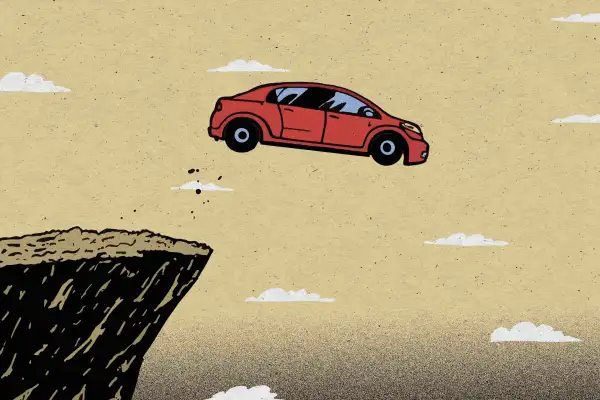People Are Falling Behind on Credit Card Bills and Auto Loans at an Alarming Rate

The rates of Americans behind on auto loan and credit card bills continue to rise — in fact, both are at the highest levels in more than 10 years.
Rising delinquencies indicate that more people are in financial distress. When auto loan or credit card payments are missed, consumers dig themselves deeper into debt and see major drops in their credit scores, so it’s usually an outcome people try to absolutely avoid.
A report from the New York Fed on Tuesday showed that 7.7% of car loan debt was 30 days late, which is the highest level since 2010 and a big increase from 6.6% a year prior.
Auto loan delinquencies rise
One reason car owners may be behind on their loans is simply that new and used vehicles have gotten much more expensive. Supply shortages in the auto industry caused car prices to shoot up starting in 2021, which means buyers are borrowing more to make their purchases. Auto loan rates have also surged in the past two years. The resulting higher monthly payments are proving to be challenging for consumers.
“Loans opened during 2022 and 2023 are, so far, performing worse than loans opened in earlier years, perhaps because buyers during these years faced higher car prices and may have been pressed to borrow more, and at higher interest rates," Fed researchers said in a blog post.
Missing credit card payments
Meanwhile, credit card balances have been rising sharply and are 14.5% higher than a year ago as Americans who lost purchasing power due to inflation are increasingly relying on credit cards for their spending.
It's best to always pay your credit card bill in full each month. If not, you should at the least aim to make the minimum payment to avoid fees and detrimental effects to your credit score.
Credit card delinquency rates for debt over 30 days late soared to 8.5% in the fourth quarter of 2023, up from 5.9% a year earlier. That’s the highest level since mid-2011.
Credit card delinquencies as measured by debt that's at least 90 days late are also at the highest levels in more than 10 years — and the same is true for auto loans.
According to the Fed, lower-income households and younger households are most at risk of falling behind on payments right now.
More from Money:
10 Best Auto Refinance Companies of February 2024
Auto Loan Rejection Rates Are at a Record High — Here’s How to Improve Your Odds of Approval

